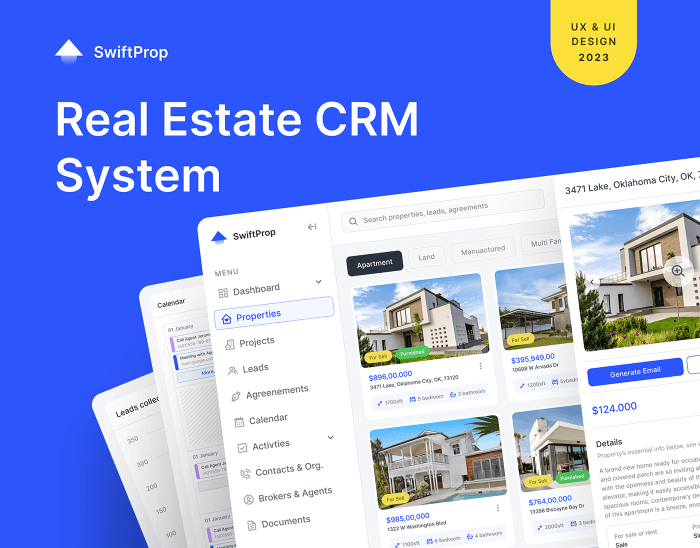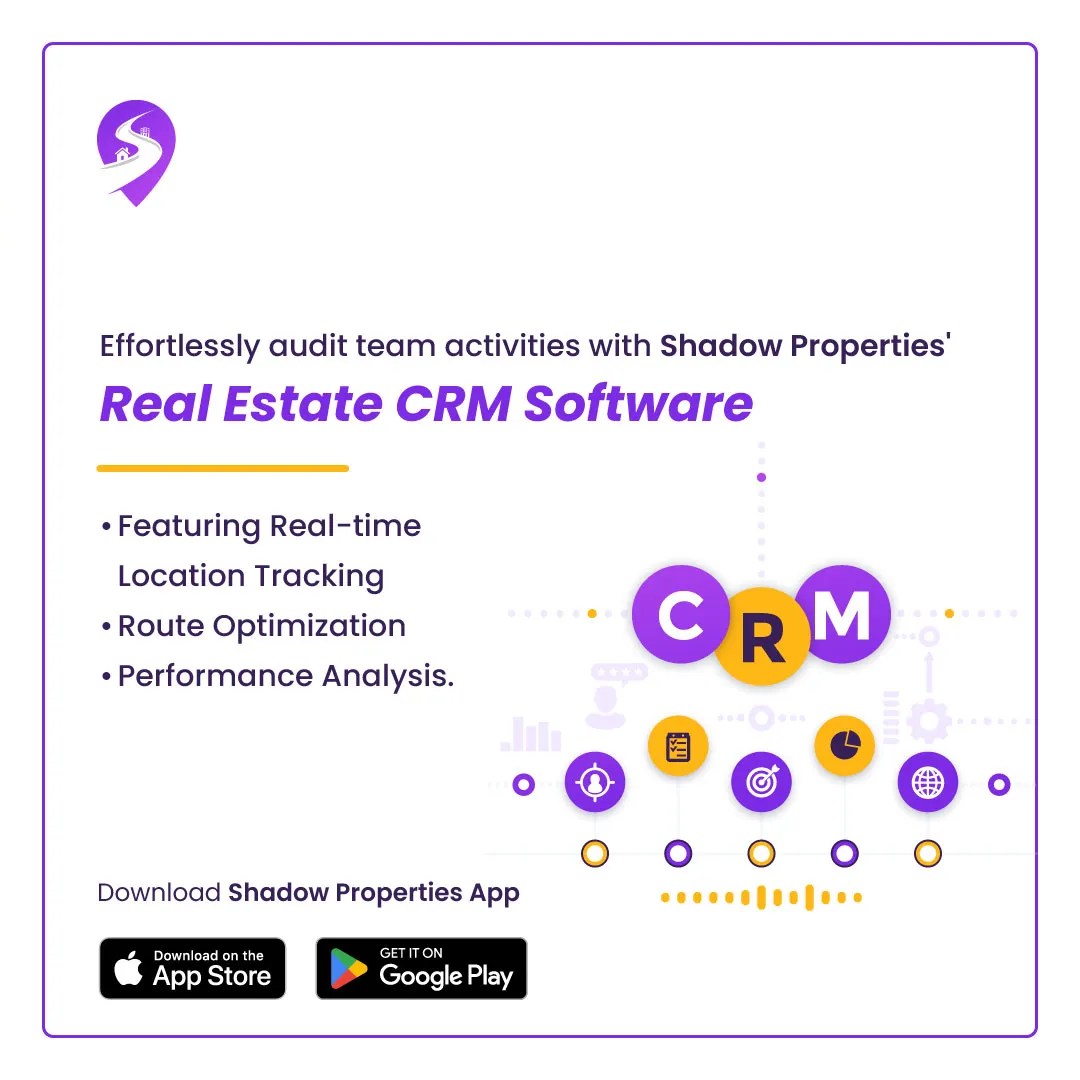Real estate customer relationship management software is revolutionizing how agents and brokers manage client interactions. It’s more than just a database; it’s a powerful tool for nurturing leads, streamlining communication, and ultimately boosting sales. This software empowers agents to stay organized, prioritize tasks, and build lasting relationships with clients, leading to increased efficiency and profitability.

Source: mytechmag.com
This software offers a suite of features designed to manage every stage of the real estate transaction, from initial contact to closing. By automating tasks, tracking communication, and providing valuable insights, real estate professionals can spend more time focusing on what matters most – their clients. This can significantly enhance client satisfaction and loyalty.
Real estate is a competitive market, and managing client relationships effectively is crucial for success. A robust Real Estate Customer Relationship Management (CRM) software solution can streamline processes, improve communication, and ultimately boost profitability. This comprehensive guide dives deep into the world of real estate CRM software, exploring its features, benefits, and how it can revolutionize your operations.
Understanding the Importance of CRM in Real Estate
In today’s fast-paced real estate environment, managing a large volume of clients, leads, and transactions manually is virtually impossible. A CRM system acts as a central hub, consolidating all client data, communication history, and transaction details in one place. This centralized approach allows agents and teams to work collaboratively, track progress efficiently, and provide exceptional client service.
Key benefits include:
- Improved Client Communication: CRM software facilitates proactive communication, sending personalized messages and updates.
- Enhanced Lead Management: Streamline the lead generation process, nurturing potential clients, and converting them into loyal customers.
- Increased Efficiency: Automate repetitive tasks, reducing manual effort and improving overall operational efficiency.
- Data-Driven Decision Making: Analyze client data to identify trends, personalize marketing strategies, and make informed business decisions.
Key Features of Real Estate CRM Software
Effective real estate CRM software solutions typically include a suite of powerful features designed to streamline various aspects of the business.
Lead Management
This crucial feature allows agents to track leads, nurture relationships, and schedule follow-up communications. It often includes features for lead scoring, categorization, and assignment.
Contact Management
Comprehensive contact information, communication history, and relevant details are stored in a central database. This feature allows for easy access and organization of client information.
Property Management, Real estate customer relationship management software
Manage listings, track showings, and maintain detailed property information. Integration with MLS (Multiple Listing Service) is often a key feature.

Source: behance.net
Marketing Automation
Automate email marketing campaigns, social media posts, and other marketing efforts to reach a wider audience and nurture leads effectively. This can save time and resources while improving results.
Reporting and Analytics
Generate insightful reports on key performance indicators (KPIs) such as lead conversion rates, agent productivity, and client satisfaction. This data-driven approach allows for strategic adjustments and improvements.
Real Estate CRM Software Comparison: Real Estate Customer Relationship Management Software
Numerous CRM solutions cater to the real estate industry. Comparing features, pricing, and functionalities is crucial before making a decision. Consider factors such as scalability, user-friendliness, mobile accessibility, and integrations with other tools.
Researching reviews and testimonials from other real estate professionals can provide valuable insights into the effectiveness and usability of different software options.
Choosing the Right CRM Software for Your Business
Consider your specific needs and budget when selecting real estate CRM software. Assess your team size, the number of properties managed, and the desired level of automation. Look for scalable solutions that can grow with your business.
Frequently Asked Questions (FAQ)
- Q: How much does real estate CRM software cost?
A: Pricing varies greatly depending on the chosen software, features, and the number of users. Contact vendors for detailed pricing information.
- Q: Is real estate CRM software easy to use?
A: Many modern CRM solutions are designed with user-friendliness in mind, with intuitive interfaces and helpful training resources.
- Q: Can real estate CRM software integrate with other systems?
A: Most reputable CRM software integrates with various systems, including MLS platforms, accounting software, and email marketing tools.
- Q: What are the benefits of using real estate CRM software?
A: Benefits include improved client communication, enhanced lead management, increased efficiency, and data-driven decision-making.
Conclusion
Real estate CRM software is an invaluable tool for real estate professionals seeking to optimize their operations and achieve greater success. By streamlining processes, enhancing communication, and improving overall efficiency, CRM software can significantly contribute to increased profitability and client satisfaction.
Investing in a robust CRM system can elevate your real estate business to new heights.
Call to Action
Ready to elevate your real estate business? Explore the top real estate CRM software options today! Visit [link to relevant resource] to learn more and request a demo.
Sources:
- [Link to a reputable real estate technology review site]
- [Link to a specific CRM vendor’s website]
- [Link to another relevant real estate industry resource]
In conclusion, real estate customer relationship management software offers a comprehensive solution for managing client interactions and streamlining operations. By leveraging the power of technology, real estate professionals can optimize their workflows, improve client service, and ultimately achieve greater success in a competitive market. The benefits are clear; increased efficiency, improved client relations, and a more profitable business model.
Detailed FAQs
How does real estate CRM software improve communication?
CRM software facilitates seamless communication by centralizing all client interactions, allowing agents to track emails, calls, and meetings in one place. This ensures that crucial information is readily available and prevents important details from being missed.
What security measures are in place for client data?
Robust security protocols are essential for protecting client data. Reputable CRM providers implement encryption, access controls, and regular security audits to safeguard sensitive information and maintain compliance with data privacy regulations.

Source: dribbble.com
Can real estate CRM software integrate with other tools?
Many CRM platforms offer seamless integration with other real estate tools, such as MLS systems, marketing automation platforms, and accounting software. This integration streamlines workflows and improves data flow between different aspects of the business.
Is real estate CRM software suitable for small businesses?
Yes, many real estate CRM solutions cater to businesses of all sizes. Features are often scalable, allowing small firms to benefit from the advantages of CRM software without significant investment or complexity.